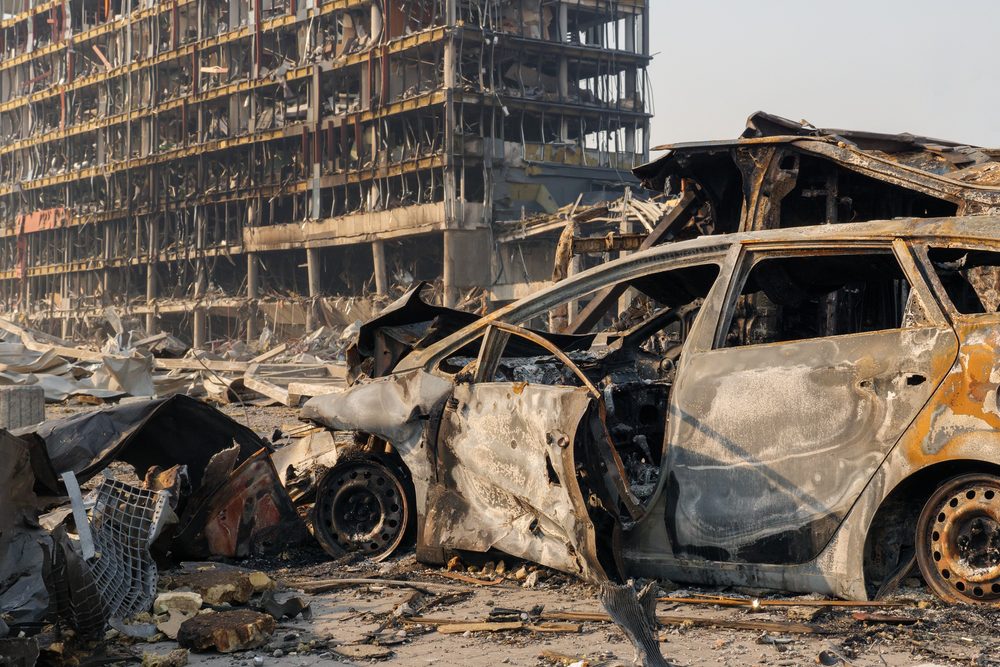
On June 5th, over 40 countries and international organisations signed the Lugano Declaration. At a two-day conference in the Swiss city of Lugano, they pledged their support to Ukraine’s reconstruction—a $750 billion undertaking according to Kyiv, which it hopes can be partly funded by confiscated Russian assets.
All signatories, which include the United States, Britain, France, and Japan, on Tuesday committed to providing political, financial, and technical support within the Lugano Principles’ framework.
These principles put a focus on partnership between Ukraine and foreign allies, so domestic reforms can be pursued. At a glance, an internationalist, UN-driven influence can be observed, given away by the usual “gender equality,” “inclusion,” and “sustainability” platitudes.
Before the war, Ukraine held a poor track record in areas like adherence to rule of law, press freedom, and level of corruption. The international community wishes, it seems, that under the banner of “democratic participation,” buttressed by “multi-stakeholder engagement,” a more “transparent” and “accountable” Ukraine shall emerge.
Speaking at the conference, Alfred Kammer, director of the International Monetary Fund’s European Department, predicted that “the implementation of reforms by Ukraine to strengthen institutions and public policy will support the transformation of the economy and lift growth and the living standards of the Ukrainian people.”
Via videolink, UN Secretary General Antonio Guterres told the conference that “millions of Ukrainians have lost their livelihoods—and 90% are at risk of falling into poverty.” He added that “the damage and devastation to homes, schools, hospitals, and other critical infrastructure will take years to rebuild.”
As the conference wrapped up, Swiss President Ignazio Cassis made much of the “sharp contrast” between the “tragic images from Ukraine that we see on the news every day” and the pleasant, cooperative mood the conference engendered. He emphasised the obligation to restore hope to Ukrainians and the many refugees the war there has spawned.
“What we have achieved over the last two days lays the groundwork that will, in the long term, allow for more than just the reconstruction of a battered country’s infrastructure and the restoration of its people’s livelihoods,” the Swiss president concluded.
Yet, while the leader paints a picture of bonhomie, his country is questioning the legality of the Ukrainian Prime Minister Denys Shmyhal’s plan. Shmyhal is keen on using $300-500 billion in Russian assets out of an estimated $750 billion required for Ukraine’s reconstruction. These assets had been frozen, largely by the U.S., the EU, and Britain. He advocates that much of that amount should go towards rebuilding demolished civilian buildings, such as schools, hospitals, and homes.
Recognizing that $750 billion, even if a portion of it will be supplied by said Russian assets, is “huge money.” Shmyhal stressed that any “aggressor has to pay for the destruction, has to pay for aggression,” and that “this formula will become a security approach in the future,” and serve as a warning for potential future aggressors.
To address the matter of legality, in late May the EU Commission already laid the groundwork for creating the legal basis needed to confiscate assets. The U.K. contemplated similar measures.
As for the Swiss delegation’s concerns (Switzerland, as a non-EU nation, thus far still retains some of its famed neutrality), Shmyhal proposed “to find [a] formula to create national and international legislation for [creating the] possibility of confiscation of frozen assets in case of unprovoked aggression,” hereby referring to Russia’s invasion of Ukraine.
In May, Switzerland reported that it had in its possession $6.50 billion in frozen Russian assets. Yet it resists the all-encompassing handover of wealth Kyiv envisions. The country, which decided to follow the EU’s lead in imposing sanctions on Russia, has long enjoyed popularity among Moscow’s elite—especially as a depository for its wealth.
According to a Swissinfo report from March, Russian clients hold up to $214 billion in assets in Swiss banks. The Swiss Bankers Association then declined to make known the portion of that which was blocked, following sanctions.
For Swiss President Ignazio Cassis, it is however important to protect individuals against the power of the state and to create a legal basis for confiscating funds. “According to the rules we have in the vast majority of democracies …, we can freeze assets, we can freeze in order to clarify where these assets are from,” he told reporters.
Yet going further than that means violating the rule of proportionality, which would “give much more power to the state and away from the citizen,” Cassis explained.
While Switzerland has been facing criticism for its lumbering pace in cracking down on Russian oligarchs, Cassis’ reluctance is not uncommon. Some major economies have been skittish about seizing and selling assets of Russian oligarchs. After all, the EU itself in the past has not fared well by enforcing and defending its financial penalties against business executives, world leaders, and corporations in court.
For now, Cassis urges Kyiv to exercise patience, as governments develop rules that can seize oligarchs’ assets without paving the way for future governments to abuse individual rights.
Meanwhile, Britain’s Foreign Secretary Liz Truss has committed her country to hosting next year’s conference on Ukraine’s arduous reconstruction efforts.
